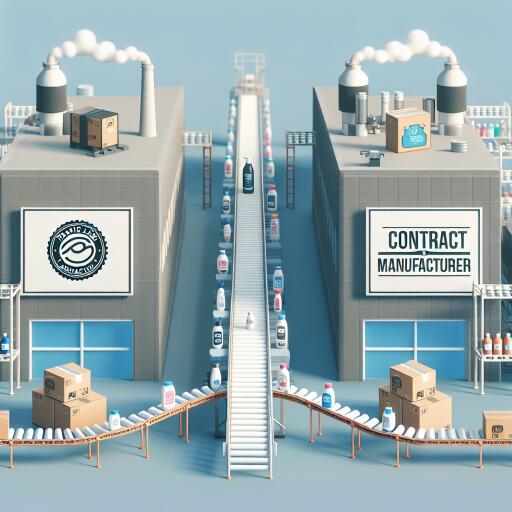Understanding the Dynamics of Private Label and Contract Manufacturing
Embarking on the journey of bringing a product to life is both an exciting and daunting task, particularly for newcomers without their own production facilities. Manufacturing demands extensive planning, control, and customization. Navigating through the complexities of outsourcing, you will likely encounter two pivotal approaches: Contract Manufacturing and Private Label Manufacturing. While both avenues can lead to the creation of admired products, distinguishing between them often baffles many.
At their core, both methods involve products being manufactured by one entity and sold under another brand. This collaboration can yield more affordable alternatives to renowned brands without compromising on quality, making such products attractive to consumers. Despite their similarities, understanding the nuanced differences between private label and contract manufacturing is key to making informed decisions that align with your business objectives.
Private Label Manufacturing: A Closer Look
Private label manufacturing simplifies the path to market for businesses, particularly benefitting smaller companies or those with a primary focus elsewhere in their operation. By opting for private label products, businesses can significantly reduce the development and production burden. This is because private labeling involves selecting already developed products and branding them as your own. It’s a route that demands less initial input on the final product thus potentially expediting the go-to-market process.
Private labeling is not just about ease and speed. It allows manufacturers to provide solutions at lower costs, enabling retailers to offer quality products at more competitive prices. For businesses seeking to expand their product lineup without the heavy lifting of product development, private labeling presents a viable option.
Contract Manufacturing: The Comprehensive Solution
Contract manufacturing stands out as a fully-fledged solution for businesses aiming to scale, enhance their market presence, and mitigate risks. This approach entrusts the entire production process to the manufacturer, from initial design specifications to the final output. It encompasses handling the supply chain, ensuring quality control, and delivering the end product according to the client’s exact requirements. Businesses opting for contract manufacturing gain a partner responsible for the intricate details of bringing their product vision to life.
The advantage of contract manufacturing lies in its capacity to provide tailor-made solutions. It caters to businesses looking to distinguish their products with unique features or formulations, thereby securing a competitive edge in the market.
Key Differences Between Private Label and Contract Manufacturing
When choosing between private label and contract manufacturing, several factors warrant consideration:
- Product Control and Customization: Contract manufacturing offers greater influence over the product’s design and specifications. In contrast, private labeling limits your input to selecting from pre-existing products.
- Cost Implications: Private label manufacturing can be more economically viable in the short run due to lower customization options. However, investing in contract manufacturing might yield a unique product that stands out in the market, potentially enhancing long-term profitability.
- Suitability: Contract manufacturing is often favored by established brands aiming for bespoke products, while private labeling is a go-to for smaller businesses or those looking to expand their product range without extensive investment in new product development.
Making the Right Choice for Your Business
Deciding whether contract manufacturing or private labeling is the best fit depends on your business needs, goals, and resources. Here are a few questions to guide your decision-making:
- Are you looking to launch a unique product with specific features or formulations?
- Is minimizing upfront costs while expanding your product range your immediate goal?
- How much control and input do you wish to have over the production process?
For businesses keen on innovation and introducing unique products to the market, contract manufacturing is an excellent pathway. It offers the flexibility and customization needed to create distinct products that capture consumer interest. On the other hand, private labeling serves well for those looking to quickly and affordably diversify their product offerings.
In conclusion, both private label and contract manufacturing offer distinct advantages and pathways to market. Understanding your business needs and market objectives is crucial in selecting the method that aligns with your vision for growth and success.
